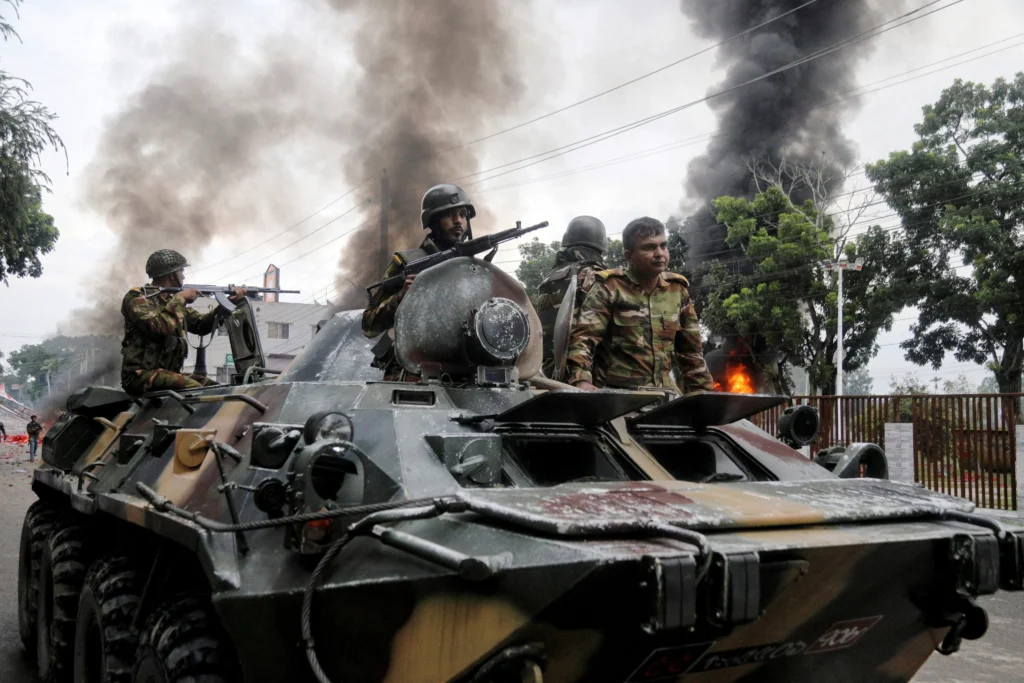At least three people were killed and several others injured during violent clashes in the southern Bangladeshi town of Gopalganj, as tensions escalated between rival political supporters. The violence erupted when supporters of the former ruling party attempted to disrupt a rally organized by the National Citizens Party (NCP), a newly formed student-led political movement.
Security forces responded to the unrest with tear gas and sound grenades in an attempt to disperse crowds. Streets in Gopalganj turned chaotic as pro-opposition activists, some armed with sticks, attacked police officers and torched vehicles. The confrontation unfolded during the NCP’s “March to Rebuild the Nation” event, a symbolic rally commemorating the anniversary of last year’s uprising that led to a major political transition.
Eyewitness accounts and medical personnel confirmed the fatalities, with one of the deceased identified as Ramjan Sikdar. The other two victims were removed from the district hospital by relatives. An overnight curfew was promptly imposed in Gopalganj in an attempt to restore order and prevent further escalation.
The interim government, which assumed power following the ousting of the previous leadership nearly a year ago, condemned the attacks as a direct assault on citizens’ rights to assembly and expression. The current head of state issued a firm statement denouncing the violence as a “heinous act” and vowed that those responsible would face justice. Authorities emphasized that intimidation and violent disruption of peaceful political gatherings would not be tolerated.
A coordinator from the NCP described the situation as dire, recounting how rally attendees had to flee to a nearby police station for safety amid threats from opposing groups. He expressed deep concern for the safety of participants, saying they feared for their lives during the attack.
The political climate in Bangladesh has remained volatile since the fall of the former administration, which was triggered by widespread student-led protests. Since then, the NCP has emerged as a significant political force, aiming to challenge the long-standing dominance of two major political dynasties.
The former leader, who has been in exile since fleeing the country during last year’s uprising, now faces several legal cases, including a recent conviction in absentia for contempt of court. The political district of Gopalganj, where the recent clashes occurred, holds symbolic importance due to its association with the former ruling family. The area is home to the mausoleum of the nation’s founding president, a key figure in the country’s independence movement and father of the deposed leader.
The NCP’s nationwide campaign, launched at the beginning of July, seeks to energize public support and lay the groundwork for broader political reforms. The movement’s rise reflects a growing appetite for change among younger generations, many of whom played a critical role in last year’s protests.
The interim leadership has announced that national elections will be held in April next year, marking a pivotal moment for the future of Bangladesh’s political landscape. As preparations for the vote intensify, concerns over further unrest and political violence remain high.

